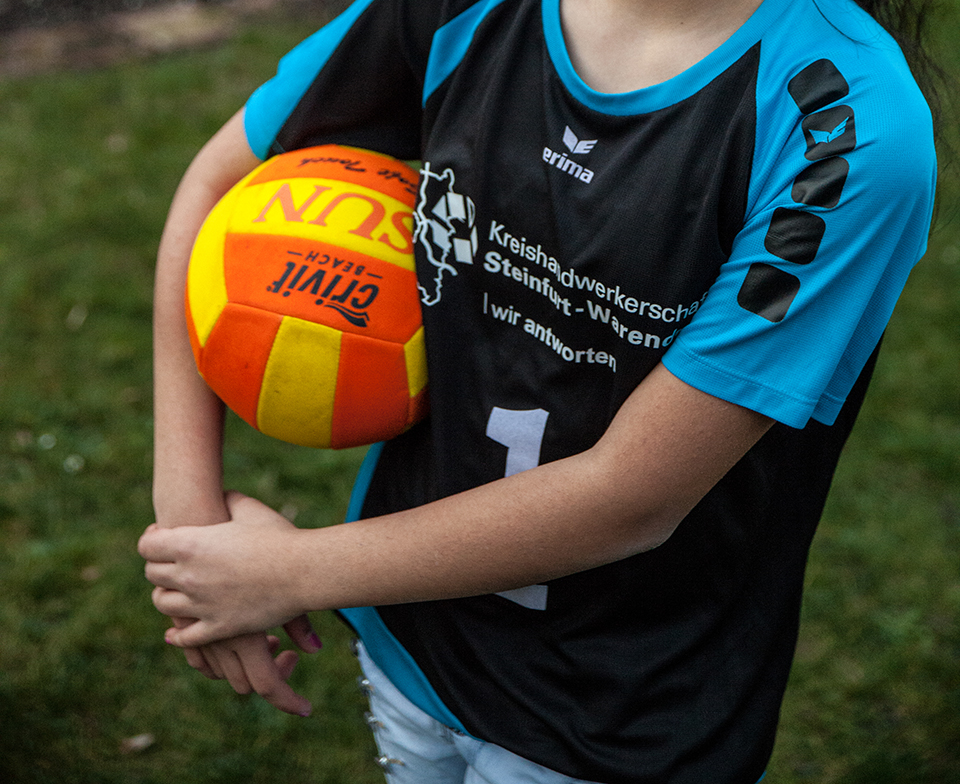Farzaneh* has mounted a tiny Christmas tree on her windowsill in the German village of Diestedde – the first Christmas tree of her life. Joined by her little sister Farnush*, the eleven-year-old has decorated it with golden baubles.
Back in Tehran, a Christmas tree on the window sill might have cost their lives. “For worship, we met in secret places“, her mother Farkhondeh*, 35, says. “Like dwelling houses.” They always kept the windows closed, the idea of singing Christmas songs still makes them laugh. Nobody was keen on ending her life as a prisoner of the Ayatollahs. The family of four was constantly afraid of getting into a raid of the Revolutionary Guards or of attracting too much attention on the street. “We heard about court hearings and nightly murders,” says Farkhondeh. “We had to think about every move in public.” Even today, she catches herself, as she nervously touches her hair before leaving the house – Did she put on the headscarf? – before she remembers that she has long ceased wearing it.
Iran, a country with as many inhabitants as Germany – 80 million – is home to 250-500.000 Christians according to estimations. Most are ethnic Armenians or Assyrians, who are allowed to live their Orthodox faith. But Christians of all other denominations, especially converts from Islam, are persecuted, imprisoned or killed.
“Living in Iran was –“ Farkhondeh is looking for an adequate word in German. “– stress?” During her six months in Germany she hasn’t heard a single word which could approximately describe the level of constant fear she felt in Iran. And even if, who would understand its meaning?
Farkhondeh’s voice is melodic, she listens to how each of her recently learned words travels the room. Only sometimes does she look for help from her eldest who has picked up more German than she has. Again and again she laughs out loud. No, underground life was not for her and her husband Kurosh*, 45. They were prosperous, with their own enterprise and a big house. When they went shopping with their eleven-year old daughter without a headscarf, they had to avoid angry looks and controls of the moral police. They let her go without the scarf anyway.
During their vacations to Turkey in April 2015, Farkhondeh and Kurosh received a call from a friend*. The police had broken into their house and searched it, he reported excitedly. They found angel figures and crosses – evidence. Acquaintances had betrayed them.
Returning had suddenly become impossible. Upon their re-entry, they would have been immediately arrested. “I was happy when I heard that we move to Europe,” said Farzaneh. “So glad,” little Farnush joins in, dangling her legs. They do not want to talk about what happened next. Nor do they want to hear it. They leave the room in a hurry, as somebody says the word “truck”.
Four days. That is how long Farkhondeh and Kurosh were imprisoned in a moving truck with their little daughters. Without food or drink. Without any light. Without a toilet. Without orientation or sense of time. They couldn’t take a plane, as they did not get a visa. In August 2015, 71 refugees suffocated on a similar journey while their truck was passing through Austria. The four from Tehran survived.
Since their arrival, they haven’t properly spoken with their grandparents who stayed in Iran. “Our conversations are always the same,” says Farkhondeh. ” ‘How are you? How’s the weather…?‘”. The things she really wants to know – How do you fare without us? How did the police react when they found out about the escape? – and the things she wants to tell them about their new life in Germany, remain unsaid. Because, this is what all Iranians in exile agree upon, their telephone calls are being monitored. Only Internet phone calls are considered safe, but as long as their asylum application has not been decided, they are not allowed to order an Internet connection.
As the truck chapter is over, Farzaneh and Farnush are back in the room, carefree as if they never had a different life. The small one wears ballet slippers, the elderly a jersey of her new sports club. “Papa, what about a volleyball match?”
* The first names were changed to ensure the family’s security. For the same reason the family name, certain details and recognizeable photos will not be published.
Any questions? Here on twitter: @chessocampo


